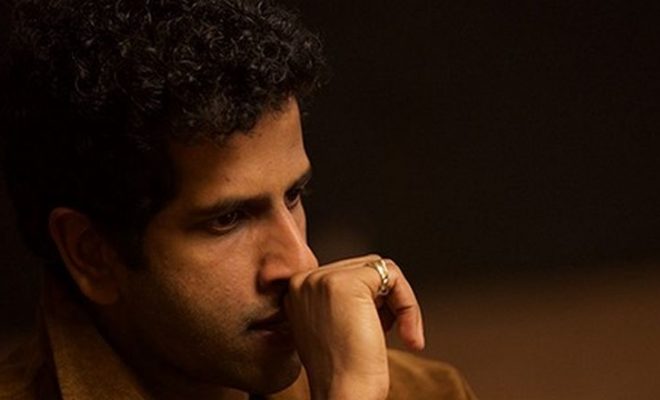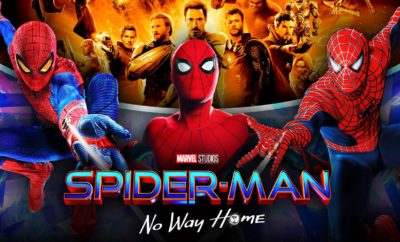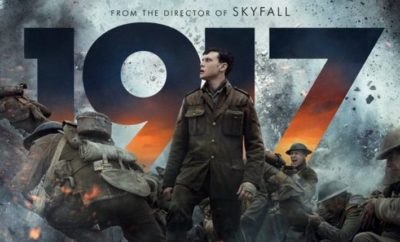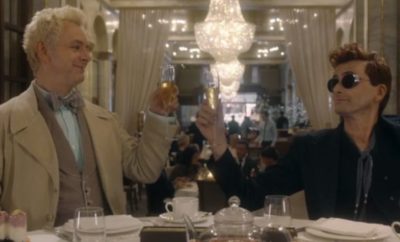
Interviews
Prasanna Puwanarajah – Patrick Melrose
By: Jamie Steinberg
Q) How did you get involved with the show?
A) It was a message from my agent. I didn’t know the books at that point, but my agent did and said, “You need to get these read, because they’re pretty extraordinary.” Then, it all turned around quite quickly and within about a week I’d been offered it and I’d read the first book. The scripts were ready in a way that actually can feel quite rare. They’re beautifully adapted by David Nicholls – sensitive, faithful and funny with such crisp characterization.
Q) Who is Johnny Hall?
A) He begins as an addict. He doesn’t have the emotional dragging anchors that Patrick Melrose has in terms of his childhood, but he is nevertheless an outsider who finds refuge and solace in drugs. He and Patrick connect because they’re both on the outside of their respective worlds, trying to escape them. At the start he’s witty, erudite, “a hedonist who’s gone a bit wrong” as Teddy [Edward St Aubyn] called him when we spoke about the character. He and Patrick (Benedict Cumberbatch) are on it in quite a major way and so when Patrick decides that he needs to turn his life around, that’s a wake-up call for Johnny as well. In the third episode you see Johnny and Patrick moving apart, because Patrick is still trying to get to a point where he’s ready to be ready, whereas Johnny’s recovery is already underway. It’s a relationship based on wit and irony, but also on honesty and love over decades of time.
Q) When Patrick and Johnny are together there’s almost a sense of a double act. Johnny’s not floored by Patrick’s wit in the way that some people are.
A) I think those scenes are very funny. Patrick and Johnny deal primarily in irony; the very first time you see them, Johnny’s first line is, “So, half an orphan, congratulations.” They’re two friends who are quite gleeful about their slightly supercilious and manufactured world weariness. They’re amusingly delighted with themselves which of course is all a front that they use to avoid talking about the important stuff.
Q) Is he based on a real person?
A) My understanding is that he’s an amalgamation of a number of people in Teddy’s life – he’s more representative of an energy of support and friendship and closeness. That means you can invent rather than have to worry too much about the specific energies of the person who this might be based upon.
Q) Have you created additional backstory?
A) Unlike Patrick, we don’t see his upbringing. All but a handful of Johnny’s scenes were two-handers with Patrick so yes, I have a little bit. I decided that, in the context of the late 70s, early 80s, he’s a British Asian man – clearly coming from money – who finds himself at odds with his personal and family heritage. He meets Patrick at university. It becomes a vicious cycle in which he then reacts to his life by pushing away from it all and he ends up propelling himself more and more to the outside of his own life.
Q) Did you and Benedict create that friendship in the shoot or did you do any work around it?
A) We’ve linked up and gone through the script and scenes, but we also find it as we go. There are takes where we’re playing the scenes at an emotionally connected and honest level, then there might be a take where we just chuck that out and everything is just completely shot from the hip and all about irony. We enjoy each other’s company in real life and it’s been a lovely collaboration.
Q) How was it working with the director, Edward Berger?
A) I met him for the first time in the audition and I liked him immediately. He’s incredibly collaborative. He and cinematographer James Friend together bring an incredible cinematic aesthetic to this, so at times it reminds me of my favorite aspects of independent cinema, but also one of the episodes reminds me of late-90s American TV: it’s a glorious festival of Steadicamming with extended three-, four-minute shots through country houses. Actors love that stuff. It’s like performing a tiny play.
Q) Did you need to study how addicts behave?
A) I did a little bit, yeah. I looked into the recovery process and we had some brilliant help in rehearsals and on set from incredibly generous people who themselves are in recovery. There are certain little things that as a medical person I was quite familiar with, like how a person handles a syringe, but our advisors were vital in helping us understand the subjective feeling of intravenous drug use, the sensory journey you go on, then what it’s like to be in withdrawal. There’s a scene in episode three where Johnny speaks at a Narcotics Anonymous meeting and it was so careful and delicate and specific. I contemplated going to a meeting, but in the end I decided not to, because I didn’t want to make that sort of intrusion. I did a lot of reading around it and spoke to a few people about their journey through recovery.
Q) Did being a doctor give you any other insight?
A) I think the pressures of practicing medicine or being a healthcare professional are and probably will always be the most extreme pressures I’ve felt in my life. I suppose Johnny and I are/were both trying to head away from eras in our lives to a place where you recognize the person that you can faithfully be.
Q) What was the hardest part of the role?
A) Well, there was a bit where I was standing in my boxer shorts and shirt on the 18thfloor of Trellick Tower with no shoes on, it was sleeting outside, it was minus four and the crew were in huge parkas with these eyes peering out… Normally that sort of stuff doesn’t bother me, but it genuinely was horrendously cold.
Q) And the best bit?
A) The scripts and the colleagues really. It’s so extraordinary and interesting and beautifully rendered. The locations and the costumes are extraordinary, and the actors are great, the crew are great and all of the artists and collaborators are as good as can be.





You must be logged in to post a comment Login